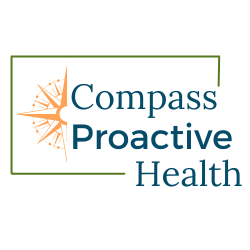Who Would Benefit From Physical Therapy?
If you’ve been referred by your doctor or are experiencing an acute or chronic pain, Physical Therapy may be for you. What do you get from seeing a physical therapist?
Individualized Approach: Physical therapy is tailored to your specific needs and goals. Whether you're recovering from an injury, managing a chronic condition, or aiming to enhance performance, a skilled physical therapist will develop a personalized treatment plan to address your unique challenges.
Pain Management and Prevention: Physical therapy offers effective strategies for managing pain and preventing future injuries. Through a combination of therapeutic exercises, manual techniques, and education on proper body mechanics, physical therapists empower individuals to take control of their health and lead active, pain-free lives.
Improved Function and Quality of Life: By targeting functional limitations and addressing underlying musculoskeletal imbalances, physical therapy helps improve mobility, strength, and overall function. Whether it's regaining independence in daily activities or optimizing athletic performance, physical therapy can significantly enhance your quality of life.
-
Assessment:
Christi will conduct a thorough evaluation to assess your current condition, including reviewing your medical history, performing physical tests, and discussing your goals and concerns.
Treatment Plan Development:
Based on the assessment findings, Christi will create a customized treatment plan outlining specific interventions and goals tailored to your needs.
Education and Initial Treatment:
In your first session, you'll receive education about your condition and how physical therapy can help. You may also begin initial treatment, which could include hands-on techniques, therapeutic exercises, modalities, or a combination of approaches.
-
A Quick Fix:
Physical therapy is not a one-size-fits-all solution or a quick fix for pain or injury. It requires dedication, consistency, and active participation from the individual to achieve long-term results.
Passive Treatment Only:
While manual therapy and modalities are important components of physical therapy, it's not solely about receiving passive treatments. Active participation in therapeutic exercises and lifestyle modifications is crucial for success.
Replacement for Medical Care:
Physical therapy complements medical care but is not a substitute for it. It's essential to work collaboratively with your healthcare team, including physicians, to ensure comprehensive and coordinated care.
-
Evidence-Based Practice:
Physical therapy interventions are grounded in scientific evidence and clinical reasoning. Therapists utilize the latest research and best practices to guide treatment decisions, ensuring effectiveness and safety.
Promotion of Healing and Recovery:
Physical therapy employs techniques that stimulate the body's natural healing processes, such as improving blood circulation, reducing inflammation, and promoting tissue repair, facilitating recovery from injury or surgery.
Empowerment and Education:
Physical therapists empower individuals by providing them with the knowledge, tools, and skills necessary to manage their conditions independently. Through education on proper body mechanics, injury prevention strategies, and self-care techniques, individuals can actively participate in their recovery journey and maintain long-term health and wellness.


